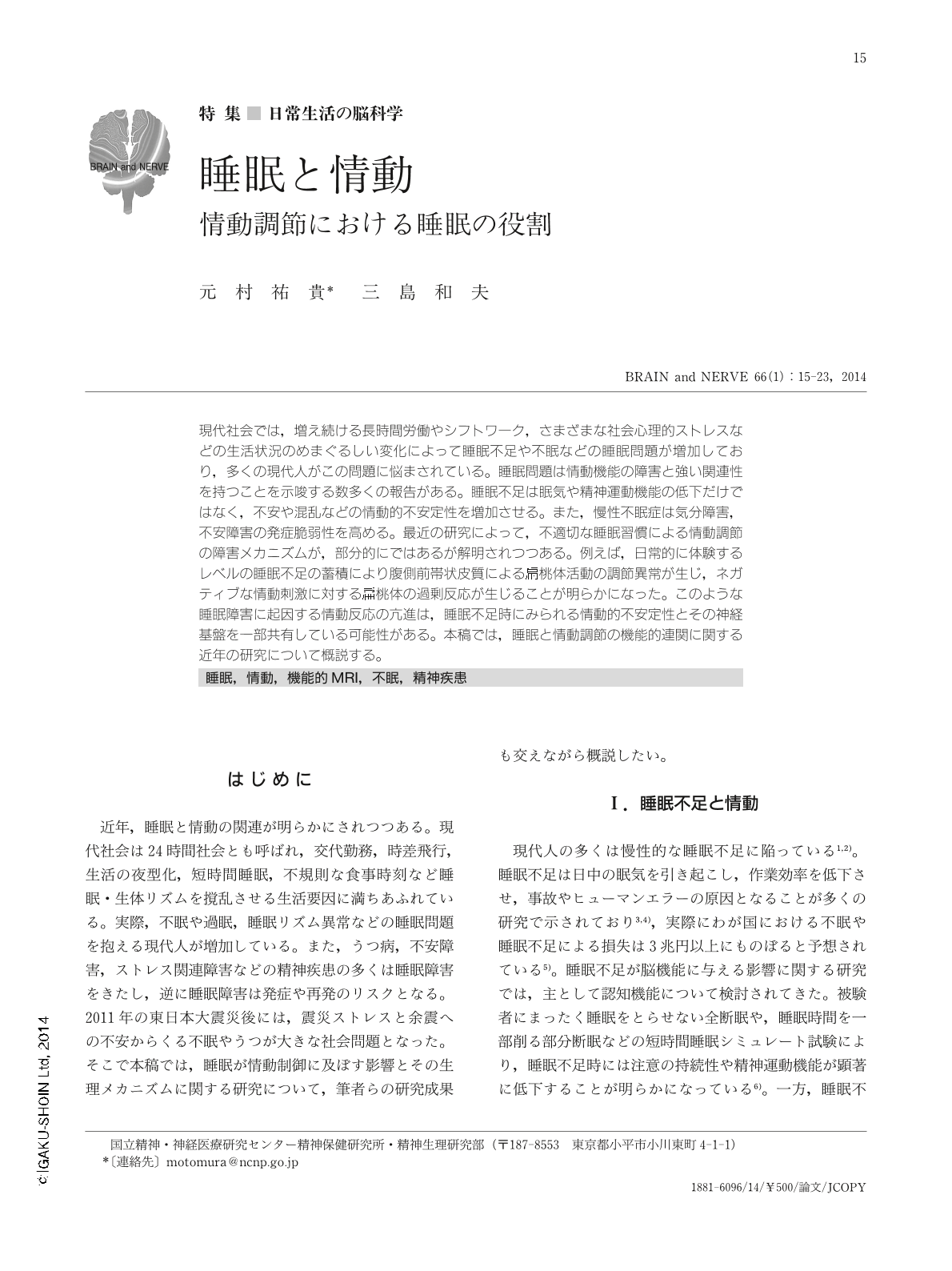Japanese
English
- 有料閲覧
- Abstract 文献概要
- 1ページ目 Look Inside
- 参考文献 Reference
現代社会では,増え続ける長時間労働やシフトワーク,さまざまな社会心理的ストレスなどの生活状況のめまぐるしい変化によって睡眠不足や不眠などの睡眠問題が増加しており,多くの現代人がこの問題に悩まされている。睡眠問題は情動機能の障害と強い関連性を持つことを示唆する数多くの報告がある。睡眠不足は眠気や精神運動機能の低下だけではなく,不安や混乱などの情動的不安定性を増加させる。また,慢性不眠症は気分障害,不安障害の発症脆弱性を高める。最近の研究によって,不適切な睡眠習慣による情動調節の障害メカニズムが,部分的にではあるが解明されつつある。例えば,日常的に体験するレベルの睡眠不足の蓄積により腹側前帯状皮質による扁桃体活動の調節異常が生じ,ネガティブな情動刺激に対する扁桃体の過剰反応が生じることが明らかになった。このような睡眠障害に起因する情動反応の亢進は,睡眠不足時にみられる情動的不安定性とその神経基盤を一部共有している可能性がある。本稿では,睡眠と情動調節の機能的連関に関する近年の研究について概説する。
Abstract
In today's modern society, an increasing number of people have developed sleep-related problems, represented by sleep loss and chronic insomnia. These are due to drastic changes in living conditions such as prolonged work time, increased shift working, and various socio-psychological stresses. Sleep problems have been reported to strongly associate with emotional dysfunction in humans. Sleep loss cause not only daytime sleepiness and psychomotor impairment, but also emotional instability, anxiety and confusion, and chronic insomnia increases vulnerability to mood and anxiety disorders. Recent studies have revealed some of the neural basis of emotional regulation by sleep. For instance, continuous and accumulating sleep debt experienced in daily living could interfere with the functional regulation of the amygdala by ventral anterior cingulate cortex. And consequently this can induce an overreaction of the amygdala to negative emotional stimuli. Sleep-related mood disturbances may, in part, be attributable to the neural basis of emotional instability during sleep debt. In this text, recent findings on the functional linkage between sleep and emotional regulation have been reviewed.

Copyright © 2014, Igaku-Shoin Ltd. All rights reserved.


